Animal Testing: Should Animal Testing Be Allowed? — Argumentative Essay
Animal testing: introduction, animal testing: debatable questions, animal testing: conclusion.
Animal testing denotes the use of animals in medical experiments to unveil the potency, safety, toxicity, and viability of developed drugs. Concurrently, the phenomenon also applies to other biological experiments, which utilize animals as specimens. The method incorporates the administration of pharmaceutical compounds into biological systems (test animals).
This usually occurs for scientific purposes and medical developments. The process is debatable and has been disputed by animal activists, religious groups, and ethical communities who believe that the trend is immoral and inappropriate since animals cannot be compared with human beings (Panza & Potthast, 2010).
Animal testing usually involve vertebrates like rodents, cats, dogs, birds, and Guinea pigs among others. Since this is a disputable phenomenon, where one can argue for or against the act, this paper supports the aspects of animal testing with bountiful reasons based on its viability in investigating pharmacological compounds. Without animal testing, numerous drugs, which currently help the humankind, could have missed.
Since human beings cannot commence crude pharmaceutical investigations as test specimens, using test animals is significant in this context. It is advisable to execute scientific investigations elsewhere before introducing them into human beings. It is crucial to agree that animal testing might be unethical phenomenon as argued by some groups; nonetheless, it should continue following its merits and contributions to the humankind in the realms of drug investigations and scientific discoveries.
With regard to animal testing, debatable questions emerge. In this paper, “Should animal testing be abandoned due to ethical claims surrounding it?” forms the debated question. This question tries to unveil whether it is viable for biologists and medical scientists to cease from using animals for experimental investigations.
Despite the conventional use of these animals in numerous scientific experiments, it is still debatable on their viability and potency. Arguably, the animal testing phenomenon should continue with regard to scientific investigations.
The need for efficacy, safety, novelty, and certainty in the realms of drug-use require thorough investigative experiments, which can only materialize when test animals are incorporated. Firstly, some animal have systems that resemble those of human beings; thus, the ability to use such animals give a broader chance of executing an elaborate experimental investigation.
Using animals as representative of humans is a critical phenomenon when scrutinized critically. There are numerous individuals who have disputed this claim as stated in the research question. The desire to continue with the animal testing phenomenon has infuriated numerous activists who are against it (Panza & Potthast, 2010).
Nonetheless, it is evident and appropriate that this phenomenon should continue for further discoveries to be realized. It is questionable how further medical research will occur and how this will materialize without the use of test animals. This is an impossible phenomenon, which demands those who are arguing against animal testing to reconsider their stands.
Another issue is that human beings cannot be used as experimental animals. The drugs administered into humans must be of some quality, minimized toxicity, viable to use, potent, safe, and effective. This means that they have been investigated and approved by the concerned bodies after scientific investigations. If animal testing will be abandoned, no effective experimentation will occur on biological vessels.
Evidently, invitro (using experimental tubes) experimentations are slow and incomprehensive. This means that scientific investigations will delay and sometimes results might not occur. It is vital to consider that animal testing has helped significantly since its inception several decades ago. It has remained a viable, trusted, and considerable experimental design for pharmaceutical products and other scientific investigations.
Harrison & Hester (2006), which identifies alternative of animal testing, agrees that attaining an alternative of this trend is daunting and minimally achievable. Scientific considerations support this trend since there are limited alternatives to replace the method comprehensively (Harrison & Hester, 2006).
Those who are against animal testing claim that animals are not human beings and equating the two is inconsiderable. Evidently, animal are not exact copies of humans. There are numerous differences noticeable amidst the two factions. Additionally, they argue that what works best in a guinea pig (an experimental animal), might not exactly perform in humans.
The two factions (humans and test animals) are different hence the assumption that they can emulate each other is misled. Notably, this argument is understandable; however, as the situation stands, it is still appropriate to conduct animal testing to help in research investigations. Humans can hardly be used for crude or undeveloped researches as the ones done with test animals. This means that animal testing is still the best option.
According to Schmidt (2001), which discusses the aspects of animal testing, recognizes that it is important to infer that what is inconsumable for test animals is similarly consumable for humans. It is possible to note the adverse effects of drugs with animals, make appropriate changes in the composition of the tested drug, and later emerge with effective, safe, and potent compound worth human utilization.
Watson (2009), which describes the ethical issues related to animal testing, argues that some ethical claims behind the animal testing are baseless when compared to human lives saved daily due to animal testing executed to investigate proper and effective drugs. A mere claim that it is immoral to inject or administer unworthy compounds into an innocent animal while doing research is superfluous. This simply means that those who are against animal testing hardly want researches to be done using animals.
This is good and considerable; however, these very people hardly provide viable alternatives that can work better compared to the conventional animal testing provisions. Besides, they are also among those who gain from the findings and results achieved from such investigations. Evidently, almost all drugs currently used in the world at one point passed through animal testing to unveil their viability, safety, efficacy, toxicity levels, and other viable provisions demanded in this context.
Concurrently, it is inappropriate to abandon animal testing as claimed by the activists. The current discoveries on genetics, reproduction, developmental biology, and study of behaviors among others could have not materialized minus animal testing.
Additionally, there are other viable provisions that characterize the phenomenon besides the known pharmaceutical investigations which usually occur using test animals as stipulated before. In these mentioned fields, there are still considerable knowledge gaps that will necessitate further application of animal testing in order to unveil additional information.
This phenomenon can hardly occur minus animal testing since there will be no specimens for further research. The ethical claims fronted by the mentioned activists should cease from hindering further investigations (Watson, 2009). It is evident that discoveries made from animal testing are numerous and helpful to the human race as indicated earlier. The need for more investigations and application of animal testing will continue to exist following its viability, applicability, and reliability in the aspects of research.
The viewpoint that animals equally have moral rights is evident; however, it is disputable in this context since it acts as a hindrance to lucrative investigations and discoveries that are helpful to the humankind. Hayhurst (2000), which debates on animal rights, denotes that individuals who perceive animal as having rights are equally accurate in their opinions; nonetheless, they should also consider the merits of animal testing to their lives and beyond.
This relates to the ethical arguments posted with regard to this topic. It forms the center of argument from various people. It is crucial to denote that animal testing has numerous provisions worth noting in varying contexts. This relates to its viability and potency in unveiling the less investigated claims with regard to life. According to various sources, some arguments regarding the aspects of animal testing are invalid and misleading (Hayhurst, 2000). They simply emerge from undue compassion for animals.
This contributes to why this paper agrees with the continuity of animal testing. Precisely, its merits surpass its baseless flaws numerous times. It is recommendable to scrutinize these arguments before they derail the realities that encompass a given matter. It is crucial to consider such provisions following their viability in this context.
Additionally, those who argue against animal testing claim that such animals lack the capacity to express themselves hence can hardly show their pain, dissatisfaction, and suffering.
This is a critical claim; however, it is not enough to support the ban against animal testing. Conversely, scientists, medics, and biologists who use such animals apply moral aspects to their undertakings; hence, will barely intend to harm such experimental animals. Since such ethical observations are carried out within the mentioned experimental testing, it is considerable to continue with the animal testing phenomenon. Adjusting the conditions of these tests might equally help in upholding the ethical demands.
Another argument is that animal testing simplifies and speeds the experimental designs meant to make discoveries. This could have not been achievable minus such experimental trends. Testing developed research products on animals elicit the desired results with promptness. It is daunting and time consuming to develop therapeutic and diagnostic compounds from human beings. This relates to the aspects of delay claimed earlier.
Scientists will not be able to attain their demands in time. This might discourage them from continuing with investigations. Since the use of animal testing provides instant results, its application is widespread, applicable, and viable in numerous contexts. The aspects of safety indicated earlier in these claims equally contribute to the applicability of animal testing. It is improper to execute unsafe experiments or unverified drugs on humans.
The repercussions might be devastating than when it was applied on test animals (Schmidt, 2001). For example, developments and investigations on HIV drugs cannot occur on humans at their initial stages. It is advisable to develop them through animal testing before rendering them usable by humans. It is possible to adjust the composition of the given compound to unveil its viable concentrations. Emerging with instant results supports the application of animal testing and contributes massively in this context.
Animal testing is a helpful phenomenon in biological, medical, and other scientific investigations demanding its incorporation. The phenomenon is helpful, viable, and should be embraced despite the opposing opinions. Animal testing helps in developing effective, safe, viable, qualitative, and less toxic drugs. Following the merits of animal testing, its application and advancements should continue while observing ethical concerns.
Harrison, R. & Hester, R. (2006). Alternatives to Animal Testing . Ohio, OH: Cengage Learning.
Hayhurst, C. (2000). Animal testing: The animal rights debate . New York, NY: Rosen Pub. Group.
Panza, C. & Potthast, A. (2010). Ethics For Dummies . Hoboken: John Wiley & Sons.
Schmidt, A. (2001). Animal testing in infectiology . Basel: Karger.
Watson, S. (2009). Animal testing: Issues and ethics . New York, NY: Rosen Pub.
- Chicago (A-D)
- Chicago (N-B)
IvyPanda. (2023, October 29). Animal Testing: Should Animal Testing Be Allowed? — Argumentative Essay. https://ivypanda.com/essays/animal-testing-argumentative-essay/
"Animal Testing: Should Animal Testing Be Allowed? — Argumentative Essay." IvyPanda , 29 Oct. 2023, ivypanda.com/essays/animal-testing-argumentative-essay/.
IvyPanda . (2023) 'Animal Testing: Should Animal Testing Be Allowed? — Argumentative Essay'. 29 October.
IvyPanda . 2023. "Animal Testing: Should Animal Testing Be Allowed? — Argumentative Essay." October 29, 2023. https://ivypanda.com/essays/animal-testing-argumentative-essay/.
1. IvyPanda . "Animal Testing: Should Animal Testing Be Allowed? — Argumentative Essay." October 29, 2023. https://ivypanda.com/essays/animal-testing-argumentative-essay/.
Bibliography
IvyPanda . "Animal Testing: Should Animal Testing Be Allowed? — Argumentative Essay." October 29, 2023. https://ivypanda.com/essays/animal-testing-argumentative-essay/.
- Argumentative Essay Writing
- Should Animals be Used in Research: Argumentative Essay
- Aspects of the Writing an Argumentative Essay
- An Argumentative Essay: How to Write
- Writing Argumentative Essay With Computer Aided Formulation
- Banning Violent Video Games Argumentative Essay
- Argumentative Paper on the Benefits of Free Range Livestock on Consumer Health Rather than Corn-Fed Livestock
- Has the Internet Positively or Negatively Impacted Human Society? Argumentative Essay
- Pros and Cons of Abortion to the Society Argumentative Essay
- Enhancement Drugs in Sports Should Be Banned: An Argumentative Paper
- Utilitarianism for Animals: Testing and Experimentation
- Burmese Pythons
- Grass Fed versus Grain and Corn Fed Animals
- Use of Animals in Biological Testing
- The Impact of Burmese Pythons on Florida’s Native Biodiversity
- Share full article
Advertisement
Supported by
student opinion

Is Animal Testing Ever Justified?
The E.P.A. recently said it would move away from requiring the testing of potentially harmful chemicals on animals. Do you support the decision?

By Natalie Proulx
Find all our Student Opinion questions here.
On Sept. 10, the Environmental Protection Agency said it would move away from requiring the testing of potentially harmful chemicals on animals, a decision that was hailed by animal rights groups but criticized by environmentalists and researchers who said the practice was necessary to rigorously safeguard human health.
What are your thoughts on animal testing? Do you think it is ever justified? Why or why not?
In “ E.P.A. Says It Will Drastically Reduce Animal Testing ,” Mihir Zaveri, Mariel Padilla and Jaclyn Peiser write about the decision:
The E.P.A. Administrator Andrew Wheeler said the agency plans to reduce the amount of studies that involve mammal testing by 30 percent by 2025, and to eliminate the studies entirely by 2035, though some may still be approved on a case-by-case basis. The agency said it would also invest $4.25 million in projects at four universities and a medical center that are developing alternate ways of testing chemicals that do not involve animals. “We can protect human health and the environment by using cutting-edge, ethically sound science in our decision-making that efficiently and cost-effectively evaluates potential effects without animal testing,” Mr. Wheeler said in a memo announcing the changes. The E.P.A. has for decades required testing on a variety of animals — including rats, dogs, birds and fish — to gauge their toxicity before the chemicals can be bought, sold or used in the environment.
The article continues:
The practice of testing with animals has long prompted complex debates driven by passionate views on morality and scientific imperative. Reaction to Tuesday’s announcement was no different. “We are really excited as this has been something we’ve wanted for quite some time,” said Kitty Block, the president and chief executive of the Humane Society of the United States, an animal protection organization. “The alternatives are the future. They’re more efficient and save lives.” Kathleen Conlee, the vice president of animal research issues at the Humane Society, said the E.P.A.’s move is “broad-sweeping and significant.” “This is the first time a government agency has made such a commitment and timelined its specific goals along the way,” Ms. Conlee said. “There’s been a lot of positive action among other federal agencies, but we want to see all government agencies take this step.” Tracey Woodruff, a professor at the University of California, San Francisco’s school of medicine, said current alternatives to animal testing are somewhat useful. But Dr. Woodruff, who worked at the E.P.A. from 1994 to 2007, said only animal testing — a process honed over decades — was robust enough to gauge chemicals’ impacts on people of various ages, genetics and health backgrounds. “I definitely think we should be investing more in this research,” she said, referring to alternative testing. “But it’s really not ready for making decisions yet — at least the way that E.P.A. is making decisions.” Jennifer Sass, a senior scientist at Natural Resources Defense Council, an environmental advocacy group, said she was very concerned by the announcement. Dr. Sass said animals were still necessary to study chronic conditions, like cancer and infertility. Cells in a petri dish cannot yet replace whole living systems, she said. “The E.P.A.’s deadline is arbitrary,” Dr. Sass said. “Our interest isn’t in speed, it’s getting it right. We want proper animal testing because we don’t want harmful chemicals to end up in our food, air and water.”
Students, read the entire article, then tell us:
Do you support the decision by the E.P.A. to move away from requiring the testing of potentially harmful chemicals on animals? Or do you think animal testing is still necessary to regulate harmful substances that can have adverse effects on humans?
How important is it to you that the toxicity of chemicals and other environmental contaminants is rigorously studied and regulated? Why? Do you think not testing on animals hinders those efforts?
The Food and Drug Administration, the National Institutes of Health and the Department of Veterans Affairs are among the government agencies that still rely on animal testing. Do you think animal testing is important in these sectors or any others? Why or why not?
Do you think animal testing is ever justified? If so, what should be the criteria for when, how and on what animals testing is done?
Students 13 and older are invited to comment. All comments are moderated by the Learning Network staff, but please keep in mind that once your comment is accepted, it will be made public.
Natalie Proulx joined The Learning Network as a staff editor in 2017 after working as an English language arts teacher and curriculum writer. More about Natalie Proulx
Home — Essay Samples — Social Issues — Animal Testing — Should Animal Testing Be Banned: A Comprehensive Analysis
Should Animal Testing Be Banned: a Comprehensive Analysis
- Categories: Animal Rights Animal Testing
About this sample

Words: 616 |
Published: Sep 7, 2023
Words: 616 | Page: 1 | 4 min read
Table of contents
Arguments for banning animal testing, arguments against banning animal testing, striking a balance, 1. ethical considerations, 2. ineffectiveness and unreliability, 3. advances in alternative methods, 1. scientific progress, 2. lack of viable alternatives, 3. benefits for human health, 1. ethical guidelines, 2. investment in alternatives, 3. transparency and accountability.

Cite this Essay
Let us write you an essay from scratch
- 450+ experts on 30 subjects ready to help
- Custom essay delivered in as few as 3 hours
Get high-quality help

Dr. Heisenberg
Verified writer
- Expert in: Social Issues

+ 120 experts online
By clicking “Check Writers’ Offers”, you agree to our terms of service and privacy policy . We’ll occasionally send you promo and account related email
No need to pay just yet!
Related Essays
2 pages / 1012 words
2 pages / 878 words
1 pages / 599 words
2 pages / 858 words
Remember! This is just a sample.
You can get your custom paper by one of our expert writers.
121 writers online
Still can’t find what you need?
Browse our vast selection of original essay samples, each expertly formatted and styled
Related Essays on Animal Testing
Imagine a world where innocent creatures are subjected to painful experiments in the name of scientific progress. This cruel reality is not a dystopian fiction, but rather a harsh truth that exists in our society. Animal testing [...]
Animal testing, also known as animal experimentation, is the use of non-human animals for scientific research purposes. It involves subjecting animals to various procedures, such as surgical operations, injections, and exposure [...]
Animal testing has been a controversial topic for many years, with strong arguments on both sides. However, the practice of using animals for testing purposes is not only ethically questionable but also scientifically [...]
Animal testing, also known as animal experimentation, is a controversial practice that has been used for centuries to advance scientific knowledge and develop life-saving medical treatments. However, animal testing raises [...]
Balls, M., & Fabre, I. (2019). Alternatives to Animal Testing: A Review. European Pharmaceutical Review, 24(6), 29-33.Ekwall, B. (2000). The Multicentre Evaluation of In Vitro Cytotoxicity (MEIC) Programme: A Model for [...]
Introduction to the issue of animal testing in the cosmetic industry The ethical concerns surrounding animal testing Arguments in favor of animal testing, including potential medical advancements [...]
Related Topics
By clicking “Send”, you agree to our Terms of service and Privacy statement . We will occasionally send you account related emails.
Where do you want us to send this sample?
By clicking “Continue”, you agree to our terms of service and privacy policy.
Be careful. This essay is not unique
This essay was donated by a student and is likely to have been used and submitted before
Download this Sample
Free samples may contain mistakes and not unique parts
Sorry, we could not paraphrase this essay. Our professional writers can rewrite it and get you a unique paper.
Please check your inbox.
We can write you a custom essay that will follow your exact instructions and meet the deadlines. Let's fix your grades together!
Get Your Personalized Essay in 3 Hours or Less!
We use cookies to personalyze your web-site experience. By continuing we’ll assume you board with our cookie policy .
- Instructions Followed To The Letter
- Deadlines Met At Every Stage
- Unique And Plagiarism Free

- school Campus Bookshelves
- menu_book Bookshelves
- perm_media Learning Objects
- login Login
- how_to_reg Request Instructor Account
- hub Instructor Commons
- Download Page (PDF)
- Download Full Book (PDF)
- Periodic Table
- Physics Constants
- Scientific Calculator
- Reference & Cite
- Tools expand_more
- Readability
selected template will load here
This action is not available.

8.10: Animal Testing Should Be Banned
- Last updated
- Save as PDF
- Page ID 35854

- Nathan Nobis
- Morehouse College via Open Philosophy Press
“Animal testing” involves experimenting on animals to try to determine whether drugs and medical treatments are safe and effective for humans. It’s wrong and should be banned.
Why? First, and most obviously, drugs and medical procedures treat diseases, injuries, and other health problems. So, to see if a treatment works, a disease or injury must be created in animals. Understatement: this is often unpleasant. Heart attacks in dogs feel awful; bone cancers in mice are painful; pigs being burned, to test burn treatments, is agonizing. Animals living with the induced conditions is unpleasant also. And they are killed at the end of the experiments to study the treatments’ effects.
It’s now easy to see why animal testing is wrong: it violates basic principles of ethical research: it is maleficent, or harmful to the research subjects; it is not beneficial to them; it is forced on them since they don’t consent; and it is unjust in that animals are burdened with problems not their own. Research – at least with animals who are conscious, and so are able to be harmed or made worse off – is wrong for reasons that comparable human research would be wrong.
Some argue that the benefits to humans justify animal testing. But when one group benefits at the major expense of another group, that’s usually wrong. And how exactly might anyone know that humans benefit more than animals are harmed? And there is scientific evidence that animal testing often is not beneficial for humans and that clinical research, public health research, and technology-based research are more useful: see the Physicians Committee for Responsible Medicine and Americans for Medical Advancement for more information.
Some claim there are “no alternatives” to animal testing, that it is “necessary.” But there are alternatives (mentioned above) and it’s not literally necessary that anyone do it: they can refrain. But suppose someone wanted to rob a bank and needed a getaway car: there is “no alternative” to a car and so it is “necessary” for the robbery. Does that make using the car OK? No. Even if something is “necessary” and there are “no alternatives” to doing it to achieve a particular end, that doesn’t make doing the action right: the end determines that.
Finally, some say that this reasoning is all beside the point: if your child was dying and animal testing would save him or her, wouldn’t you want the testing done? Many would and that’s an understandable feeling. But it’s unlikely that animal experimentation would help their child much: other methods are likely more fruitful. And more importantly, if my child were dying and I tried to experiment on my neighbor’s children to try to save my own child, that would be wrong.
Why? Simply because those children would be harmed and treated as mere things to be used (and abused) for my and my child’s benefit, which they are not. Since those reasons apply to many animals experimented upon, animal testing is also wrong.
IELTS Mentor "IELTS Preparation & Sample Answer"
- Skip to content
- Jump to main navigation and login
Nav view search
- IELTS Sample
IELTS Writing Task 2/ Essay Topics with sample answer.
Ielts writing task 2 sample 731 - nowadays animal experiments are widely used to develop new medicines, ielts writing task 2/ ielts essay:, nowadays animal experiments are widely used to develop new medicines and to test the safety of other products. some people argue that these experiments should be banned because it is morally wrong to cause animals to suffer, while others are in favour of them because of their benefits to humanity..
IELTS Materials
- IELTS Bar Graph
- IELTS Line Graph
- IELTS Table Chart
- IELTS Flow Chart
- IELTS Pie Chart
- IELTS Letter Writing
- IELTS Essay
- Academic Reading
Useful Links
- IELTS Secrets
- Band Score Calculator
- Exam Specific Tips
- Useful Websites
- IELTS Preparation Tips
- Academic Reading Tips
- Academic Writing Tips
- GT Writing Tips
- Listening Tips
- Speaking Tips
- IELTS Grammar Review
- IELTS Vocabulary
- IELTS Cue Cards
- IELTS Life Skills
- Letter Types

- Privacy Policy
- Cookie Policy
- Copyright Notice
- HTML Sitemap

Cruelty Free International
subtitle: Working to create a world where no animals suffer in a laboratory
breadcrumb navigation:
- About Animal Testing /
- current page Arguments against animal testing
Arguments against animal testing
Animal experiments are cruel, unreliable, and even dangerous
The harmful use of animals in experiments is not only cruel but also often ineffective. Animals do not naturally get many of the diseases that humans do, such as major types of heart disease, many types of cancer, HIV, Parkinson’s disease or schizophrenia. Instead, signs of these diseases are artificially induced in animals in laboratories in an attempt to mimic the human disease. Yet, such experiments belittle the complexity of human conditions which are affected by wide-ranging variables such as genetics, socio-economic factors, deeply-rooted psychological issues and different personal experiences.
It is not surprising to find that treatments showing “promise” in animals rarely work in humans. Not only are time, money and animals’ lives being wasted (with a huge amount of suffering), but effective treatments are being mistakenly discarded and harmful treatments are getting through. The support for animal testing is based largely on anecdote and is not backed up, we believe, by the scientific evidence that is out there.
Despite many decades of studying cancer, Alzheimer’s disease, Parkinson’s disease, diabetes, stroke and AIDS in animals, none of these conditions have reliable and fully effective cures and some don’t even have effective treatments.
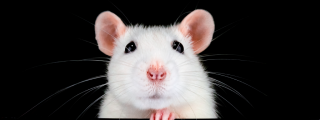
The history of cancer research has been the history of curing cancer in the mouse. We have cured mice of cancer for decades and it simply didn’t work in human beings.
Unreliable animal testing
- 92% of drugs fail in human clinical trials despite appearing safe and effective in animal tests, often on safety grounds or because they do not work.
- Urology drugs have the lowest success rate (only 4% are approved after entering clinical trials) followed by heart drugs (5% success rate), cancer drugs (5% success rate) and neurology drugs (6% success rate).
- Our research has shown that using dogs, rats, mice and rabbits to test whether or not a drug will be safe for humans provides statistically little useful insight. Our study also revealed that drug tests on monkeys are just as poor as those using any other species in predicting the effects on humans.
- A recent study found that out of 93 dangerous drug side effects, only 19% could have been predicted by animal tests.
- Another study showed that over 1,000 potential stroke treatments have been “successful” in animal tests, but of the approximately 10% that progressed to human trials, none worked sufficiently well in humans.
- One review of 101 high impact discoveries based on basic animal experiments found that only 5% resulted in approved treatments within 20 years. More recently, we conducted an analysis of 27 key animal-based ‘breakthroughs ’ that had been reported by the UK press 25 years earlier. Mirroring the earlier study, we found only one of the 27 “breakthroughs” had been realised in humans, and that was subject to several caveats.
Dangerous animal testing
- Vioxx, a drug used to treat arthritis, was found to be safe when tested in monkeys (and five other animal species) but has been estimated to have caused around 140,000 heart attacks and strokes and 60,000 deaths worldwide.
- Human volunteers testing a new monoclonal antibody treatment (TGN1412) at Northwick Park Hospital, UK, in 2006 suffered a severe immune reaction and nearly died. Testing on monkeys at 500 times the dose given to the volunteers totally failed to predict the dangerous side effects.
- A drug trial in France resulted in the death of one volunteer and left four others severely brain damaged in 2016. The drug, which was intended to treat a wide range of conditions including anxiety and Parkinson’s disease, was tested in four different species of animals (mice, rats, dogs and monkeys) before being given to humans.
- A clinical trial of Hepatitis B drug fialuridine had to be stopped because it caused severe liver damage in seven patients, five of whom died. It had been tested on animals first.
Animals are different
- Animals do not get many of the diseases we do, such as Parkinson’s disease, major types of heart disease, many types of cancer, Alzheimer’s disease, HIV or schizophrenia.
- An analysis of over 100 mouse cell types found that only 50% of the DNA responsible for regulating genes in mice could be matched with human DNA.
- The most commonly used species of monkey to test drug safety (Cynomolgous macaque monkeys) is resistant to doses of paracetamol (acetaminophen) that would be deadly in humans.
- Chocolate, grapes, raisins, avocados and macadamia nuts are harmless in humans but toxic to dogs.
- Aspirin is toxic to many animals and would not be on our pharmacy shelves if it had been tested according to current animal testing standards.
The science relating to animal experiments can be extremely complicated and views often differ. What appears on this website represents Cruelty Free International expert opinion, based on a thorough assessment of the evidence.
FIND OUT MORE ABOUT ANIMAL TESTING

Alternatives to animal tests are often cheaper, quicker and more effective.
Alternatives to animal testing
subtitle: Alternatives to animal tests are often cheaper, quicker and more effective.
Science Page

Established in 1898, Cruelty Free International is firmly rooted in the early social justice movement and has a long and inspiring history.
Our History
subtitle: Established in 1898, Cruelty Free International is firmly rooted in the early social justice movement and has a long and inspiring history.
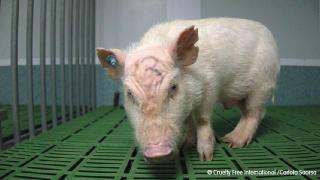
Animal testing is carried out in a wide range of areas, including biological research, and testing medicines and chemicals.
Types of animal testing
subtitle: Animal testing is carried out in a wide range of areas, including biological research, and testing medicines and chemicals.
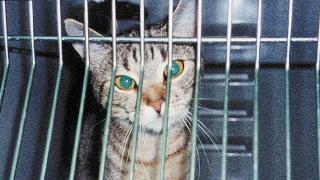
Millions of animals are used and killed in the name of progress every year.
Facts and figures on animal testing
subtitle: Millions of animals are used and killed in the name of progress every year.
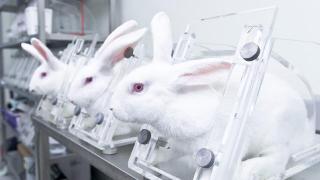
Animals used in laboratories are deliberately harmed, not for their own good, and are usually killed at the end of the experiment.
What is animal testing?
subtitle: Animals used in laboratories are deliberately harmed, not for their own good, and are usually killed at the end of the experiment.

Science Publications
- Animal Rights Essays
Should Animal Testing be banned? An Ethical Exploration Essay
One of the most debated topics in modern animal right discourses is whether animals should be used for scientific test or not. There is always a group of scholars and common people who are dead against the animal test. On the other hand, considerate people opine that animals can be used in scientific experiments, if such experiments are meant for the betterment of humanity and animal kingdom. Some of those who are against animal-testing argue that those animals which possess consciousness and a certain level of rational capability should have the right not to be used for scientific experiment. Another group argues that the criterion of having rationality and consciousness should not be the sole basis against animal-testing; rather the fact that every animal suffers from pain is strong enough to ban animal-testing. Obviously, this contra-animal-testing group fails to perceive that a firm and steadfast opposition against animal-test is as harmful as the view of ‘animal as thing’ is. For example, whereas a scientific experiment on animal could save thousands of man and animals lives, ban on animal-testing may destroy the possibility of living a healthy and disease free life. Therefore, though animals have the rights to live a pain-free life, such rights can be repealed for the sake of the humanity’s betterment. Moreover, any ethical perspective on animal-rights must include human’s interest in animal. Otherwise, any attempt to view animals as self-independent beings and detached from humanity must fail to bring about good for humankind as well as animal.
Struggling with your HW?
Get your assignments done by real pros. Save your precious time and boost your marks with ease. Just fill in your HW requirements and you can count on us!
- Customer data protection
- 100% Plagiarism Free
Utilitarian Arguments for Animal-testing and Animal Right Perspectives
The origin of the arguments for animal-testing can be traced in Biblical affirmation. The “Book of Genesis” asserts that Man has a divine right over the animal kingdom. It says that man’s dominion over the animal kingdom is divine, as the “Book of Genesis” says that God has given Adam dominion over “the fish of the sea, and over the fowl of the air, and over the cattle, and over all the earth, and over every creeping thing that creepeth upon the earth.” (Francione, 1996, p. 45) Such biblical evidence necessarily infers that man can use animals for his own happiness and comfort. Therefore, if animal-testing can bring something good to humankind, then it is thoroughly permissible. Indeed, the utilitarian perspective seems to dominate the pro-animal-test arguments. The pro-animal-test debaters argue that animals can serve as good specimens for medical experiments. Even some animals such as rats, dogs, frogs and many others are efficient replicas of man’s genealogical and biological functions. So, scientific tests on animals can effectively foretell the prospect of expected results of any medical theories, propositions and hypothesis. Therefore, a single animal-test can enormously contribute to the development of medical knowledge. In cases, it can save thousands of men and animals’ lives. Furthermore, a nepotistic prioritization seems to provide the basis for animal-test. A pro-animal-testing debater argues that if the sacrifice of one animal’s life on a scientist’s table can save many men’s lives, then humankind should not keep away from enjoying the opportunity to use animals for man’s sake.
Animal’s Sentience, Ability to Feel Pain and Ethical Basis of Arguments for Animal-testing
Used our essay samples for inspiration ?
For more help, tap into our pool of professional writers and get expert essay editing services!
Debates on animal experimentation often focus on the capability of animals to be sentient and to feel pain as proofs of their rights whether to be or not to be slain on the scientist’s table. Though animal’s ability to feel pain is an anonymously acknowledged matter of fact, their sentience is often disputed. Referring to Descartes’ claim that the animals do not have consciousness, the pro animal-test debaters argue that animals should not possess any right which can protect them from going to the scientists’ lab. Echoing Descartes’ view, lawyer Steven M. Wise claims that animals should not have right because “it lacks that quality of mind that matters for legal rights. They’re not aware that they, or anyone else, exist. . . . Entitlement to legal rights rests upon the existence of conscious states.” (Taylor, 2009, p. 62)
Regarding animals’ ability to feel, the debaters depend on a utilitarian perspective in order to continue their support for animal experimentation. They argue that animals should be allowed to die for a greater purpose, as it is the duty of a soldier to die for his or her country. Even though a soldier knows that going to war may violate his right to live a suffering free life, he must fulfill his duty. But in an animal’s case, since it does not have the power of reasoning and ability of taking decision, it is man’s duty to send it to the scientist’s lab for the sake of the greater interest.
But also regarding the humanitarian issues of animal experimentation, the pro-experiment group argues that the humanitarian role of animal experimentation is inevitable. Therefore, scientists should find effective alternatives of animal experimentation. Also they should focus on reducing the pain and suffering of the animals in experimentation. But if they are left with no other choice, they can continue experimentation as required.
Humanitarian Issues of Animal Experimentation
Apart from the moral, ethical and sacramental debates on the validity of animal-testing, a pure humanitarian view seems to dominate the animal-right discourses. An animal specimen may face both painful and silent death. A painful death from a lethal chemical injection or a microbial contagion may evoke an unaccustomed observer’s protest against animal experimentation. An online visitor’s reaction to cosmetic experiment on guinea pigs is as following:
Do you really want a poor innocent animal that has been smuggled to be tortured, cut open many times, then sewn back together just so your blush would fit your skin tone? Looking good is important, especially for women and young adults. However, we can test the cosmetics or any other medicine on something else. (“Should animal testing be banned?” N.D., pars. 5)
Indeed, humanly compassion and empathy for the sufferer dominate the humanitarian of animal experimentation. Richard D. Ryder notes that the first-known legislative protection of animal from pain was enforced by the Irish parliament in 1635 (Ryder, 2000, p. 49). The main drive behind the legislation of the law was people’s humanitarian protest against “the cruelty used to beasts.” (Nash, 1989, p. 34) Such humanitarianism is also expressed in another law passed by the local parliament in Massachusetts State in 1641: “No man shall exercise any Tyranny or Cruelties toward any brute Creature which are usually kept for man’s use.” (Nash, 1989, p. 19) Opposing Descartes’ attempt to nullify animal rights on the basis that they do not possess any consciousness or rational faculty, philosopher John Locke claims that brutality to animals rather destroys man’s humanity, as he says, “For the custom of tormenting and killing of beasts will, by degrees, harden their minds even towards men.” (Locke, 1693, p. 23)
Humanitarianism further tends to determine animal-right issues in scientific experiments on the ground that animals are able to suffer. Since animals like any other human being suffers from pains, natural laws as well as natural rights should be extended to them. In this regard, Jeremy Bentham argues that if rationality or sentience is taken into consideration as the basis of an animal’s right to live a pain-free life, then human child as well as mentally retards will be deprived of the natural rights to live a pain-free life, as Jeremy Bentham (1789) says:
But a full-grown horse or dog, is beyond comparison a more rational, as well as a more conversable animal, than an infant of a day or a week or even a month, old. But suppose the case were otherwise, what would it avail? the question is not, Can they reason?, nor Can they talk? but, Can they suffer? (Garner, 2005, pp. 12-13)
Arguments against Animal-testing and Animal Right Perspectives
Dissidents against animal-testing, in the first place, complain that animal-experimentation is the violation of a living being’s natural right. A group of these people like to view man and animals on the same chain of consciousness in which animals are supposed to have a lower level of sentience than man’s consciousness. James Rachel (1990) echoes their belief in the following line: “There is no fundamental difference between man and the higher mammals in their mental faculties” (p.67). This perspective about man’s and animal’s position on the same of chain of consciousness, but with different levels, essentially evolves from some domineering tenets of ancient Greek philosophy about soul. For example, Pythagoras believes that animals’ souls are reincarnated from human souls and vice versa. Even Aristotle also ratifies Pythagoras’s doctrinal view about the similarity of animal soul with man’s right but from a different perspective. He likes to see human beings and animals on the same ‘Great Chain of Being’. (Fellenz, 2007, pp.34-45)
But another group of dissidents argues that the question of consciousness should not dominate the question of animals’ natural rights. Marian Stamp Dawkins says that animals’ sentience is a disputed topic. In this regard, he says, “Different animals might possess some or all of these attributes to different extents, so that it may not be possible to say that an animal is either conscious or not” (Taylor, 2009, p.67). Therefore, this group of dissidents against animal experimentation argues that consciousness or sentience cannot be the true basis of natural rights of animals, as Philosopher David S. Oderberg (2002) states,
The truth is that there is no straight entailment between consciousness . . . and the possession of rights. What is the logical connection between sentience and rights? Feeling pain/ pleasure is just another way that a creature’s life can go badly/ well for it. . . (In Waldau, 2011, p. 89)
What Rights Animals should enjoy in terms of Scientific Experimentation?
The role of animal experimentation in the advancement of modern medical science cannot be overlooked. But modern animal right concerns are also age-worthy and irrefutable. So, responsible authorities must come to a conclusion which will, at a time, fulfill the needs of animal experimentation and not violate animal rights. Any staunch opposition to animal experimentation cannot bring anything good to humanity. Even in some cases, such rigid opposition may prove to be harmful to both mankind and animals. Therefore, animals should be allowed to have some rights such as having proper anesthesia, to undergo less pain, etc during scientific experiments. But if there is no other way but to violate animals’ right, a utilitarian perspective should determine the decision about an animal’s fate. Even though dissidents against animal experimentation defy the sacramental assertion about man’s dominion over animal kingdom, it can be argued that man’s dominion over animal kingdom does not necessarily mean that man should be the ruthless exploiter of animals. Rather God wants man to be the careful guardians of animals (Francione, 1996, pp. 42-46). Even if man is considered as the guardian of animal kingdom, it is man’s duty to treat his subjects fairly. In his book, “Discourse on Inequality”, referring to this guardianship of man over animals, Jean-Jacques Rousseau (1754) says,
…it is clear that, being destitute of intelligence and liberty, they cannot recognize that law; as they partake, however, in some measure of our nature, in consequence of the sensibility with which they are endowed, they ought to partake of natural right; so that mankind is subjected to a kind of obligation even toward the brutes. (p. 45)
Indeed, a steadfast opposition against animal deprives humankind of the greater benefits of science. On the other hand, animal-experimentation is the violation of natural right. It not only violates the natural rights of animals but causes serious damage man’s humanity. Therefore, animals should have particular rights in terms of scientific experimentation. Obviously, these rights should be listed according to priority. Scientists should make every possible effort to reduce animal-specimen’s pain and any other major harm. Also in the first place, they should wholeheartedly try to keep animals away from the scientists’ table. But if there is no other possible alternative, then the scientists may be allowed to have the right to push an animal between the jaws of death only for the sake of the greater interest of humanity. Animal-right activists must remember that whereas a scientific experiment on animal could save thousands of man and animals lives, ban on animal-testing may destroy the possibility of living a healthy and disease free life. Therefore, though animals have the rights to live a pain-free life, such rights can be repealed for the sake of the humanity’s betterment.
Fellenz, M. R. (2007). The Moral Menagerie: Philosophy and Animal Rights. University of Illinois Press.
Francione, G. (1996). Rain Without Thunder: The Ideology of the Animal Rights Movement. Temple University Press.
Garner, R. (2005). The Political Theory of Animals Rights. Manchester University Press.
Locke, J. (1693). Some Thoughts Concerning Education. New York: Bentham Publishers.
Nash, R. (1989). The Rights of Nature: A History of Environmental Ethics. University of Wisconsin Press.
Rachels, J. (1990). Created from Animals: The Moral Implications of Darwinism. Oxford University Press.
Rousseau, J. J. (1754). Discourse on Inequality. Retrieved April 02, 2013 from http://www.constitution.org/jjr/ineq_02.htm
Ryder, R. (2000). Animal Revolution: Changing Attitudes Towards Speciesism. Berg.
Should animal testing be banned? Debate.org. Retrieved April 02, 2013 from http://www.debate.org/opinions/should-animal-testing-be-banned
Taylor, A. (2009). Animals and Ethics: An Overview of the Philosophical Debate. Broadview Press.
Waldau, P. (2011). Animal Rights: What Everyone Needs to Know. Oxford University Press.
Related Essays
Find Free Essays
We provide you with original essay samples, perfect formatting and styling
Request must contain at least 2 characters
Popular Topics
Samples by Essay Type
Cite this page
About our services
Topic Animal Rights
Level College
This sample is NOT ORIGINAL. Get 100% unique essay written under your req
- Only $11 per page
- Free revisions included
Studyfy uses cookies to deliver the best experience possible. Read more.
Studyfy uses secured cookies. Read more.

Essay on Why Animal Testing Should Be Banned
Students are often asked to write an essay on Why Animal Testing Should Be Banned in their schools and colleges. And if you’re also looking for the same, we have created 100-word, 250-word, and 500-word essays on the topic.
Let’s take a look…
100 Words Essay on Why Animal Testing Should Be Banned
Animal testing is unkind.
Animal testing often causes pain and suffering to animals. They are kept in small cages and are used for experiments that can hurt them. This is not fair because animals feel pain just like we do. We should not make them suffer for our benefits.
Not Always Useful
Many times, tests on animals do not give results that are helpful for humans. This is because animals and humans are different. So, the pain we cause to animals may not even help us in the end.
Better Options Exist
Nowadays, we have other ways to test products that do not involve hurting animals. Scientists can use computer models or grow human cells in labs. These methods can give us good information without causing harm to any living creature.
250 Words Essay on Why Animal Testing Should Be Banned
Animal testing: why it should be banned.
Animal testing refers to scientific experiments using non-human animals as subjects. For many years, animals have been used in experiments to study diseases, test medicines, and explore other scientific questions. However, there are many reasons why this practice should be banned.
Pain and Suffering
Animals experience pain and suffering just like humans do. In animal testing, animals are often subjected to painful procedures, such as surgery, injections, and exposure to harmful chemicals. They may be kept in cramped and unsanitary conditions and denied proper food, water, and veterinary care.
Unreliable Results
Animal testing results are often unreliable when applied to humans. Animals may respond differently to drugs and treatments than humans do, leading to inaccurate or misleading findings. Additionally, the stress and fear experienced by animals during testing can affect the results, making them even less reliable.
Alternatives to Animal Testing
Today, there are many alternative methods available that can replace animal testing. These methods include computer simulations, cell cultures, and human tissue models. These alternatives are not only more humane, but they are often more accurate and reliable than animal testing.
Ethical Concerns
Animal testing raises serious ethical concerns. Many people believe that it is wrong to harm or kill animals for the sake of scientific research. Animals are sentient beings who deserve to be treated with respect and compassion.
In light of the pain and suffering caused to animals, the unreliability of results, the availability of alternatives, and the ethical concerns, it is clear that animal testing should be banned. It is time to move towards a more humane and ethical approach to scientific research.
500 Words Essay on Why Animal Testing Should Be Banned
What is animal testing.
Animal testing is the use of animals in experiments and other scientific studies. Animals are used to test products such as medicines, cosmetics, and chemicals, as well as to study diseases and develop new treatments.
Why is Animal Testing Bad?
Animal testing is bad because it causes pain and suffering to animals. Animals are often subjected to painful procedures, such as surgery, injections, and exposure to toxic chemicals. They may also be deprived of food, water, and sleep.
Animals Are Not Like Humans
The results of animal tests are not always accurate because animals are not like humans. They have different bodies, different metabolisms, and different immune systems. This means that drugs and chemicals that are safe for animals may not be safe for humans.
There Are Alternatives to Animal Testing
There are many alternatives to animal testing that are more accurate and humane. These alternatives include computer models, cell cultures, and human tissue samples. These alternatives are often more cost-effective than animal testing and do not cause pain and suffering to animals.
Animal Testing is Cruel and Unnecessary
Animal testing is a cruel and unnecessary practice. There are many alternatives to animal testing that are more accurate and humane. We should ban animal testing and replace it with these alternatives.
Animal testing is a cruel and unnecessary practice. It causes pain and suffering to animals and is often inaccurate. There are many alternatives to animal testing that are more accurate and humane. We should ban animal testing and replace it with these alternatives.
That’s it! I hope the essay helped you.
If you’re looking for more, here are essays on other interesting topics:
- Essay on Which Economic System Is The Best And Why
- Essay on Where Do You See Yourself In The Future
- Essay on Whatsapp Boon Or Bane
Apart from these, you can look at all the essays by clicking here .
Happy studying!
Leave a Reply Cancel reply
Your email address will not be published. Required fields are marked *
Save my name, email, and website in this browser for the next time I comment.

Animal Testing Essay Guide + Topics
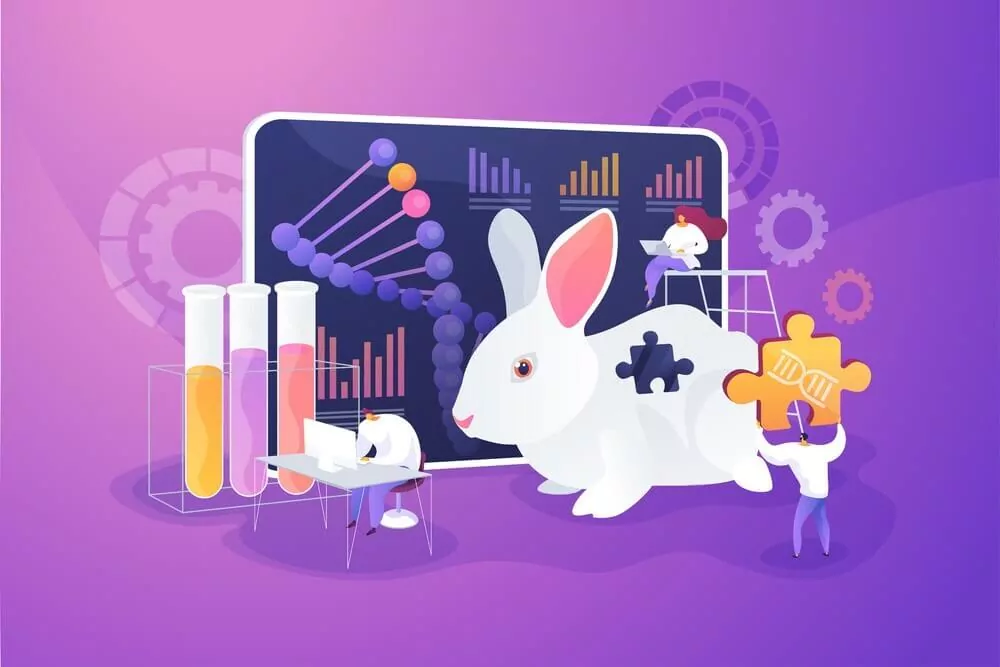
Whether you are taking a position for or against animal testing in your essay, here are some helpful hacks, tips, and tricks you can use to ace your paper.
Animal testing is a controversial issue of global scope. However, with pandemics and outbreaks being a common phenomenon and the rise of the cosmetics industry, many animals are used in scientific research. Also known as in-vivo, animal experimentation, or animal research, animal testing entails using animals in different levels of experiments to investigate the reactions, performance, and potency of various medications, drugs, cosmetic products, and foods.
Use in both biological, medical, and now beauty studies, animal testing has gained comprehensive coverage. When writing persuasive or argumentative essays, you are likely to be given an animal testing research topic for your essay. The interest of commercial bodies and pharmaceutical companies and the ethics surrounding everything that occurs around us makes writing an animal testing argumentative or persuasive essay interesting.
When we asked 100 students who had ordered custom persuasive or argumentative animal testing essays from our website, they confessed that writing the essay only seems easy at its face value. However, it becomes complicated as they plan, conduct research, and write animal research papers. Do not fear, though because, you can either get an argumentative essay expert to write your essay or a model essay for you. Alternatively, use this guide to write a paper that will check all the boxes that your professor or instructor supposes you cannot.
What to include in your introduction?
When writing an animal testing introduction, avoid wasting too many words. Instead, write an introduction that attracts your readers, piques their interest, and keeps them glued to the end. This means that you should have: (a) hook , (b)background statement (where you explore the problem at hand), and (c) your animal-testing thesis statement.
Most of the top essay writers on our website revealed that they usually search for animal testing essay examples online for inspiration : it helps get a general atmosphere surrounding a controversial topic. With such a background, they can develop a thesis statement that defines their stance and the scope of their animal research essay.
Here are some excellent ideas for your first sentence or the hook:
- Statistics of animals killed annually for research
- Facts on animals are mostly used
- The position of the society
- Catchy facts
- Controversial statements on animal research
- Shocking facts about animal testing, e.g., Surprisingly, as People for the Ethical Treatment of Animal reports, almost 100 million animals are killed in just the laboratories in the U.S. for research such as biology lessons, experimentation, food, drug, and cosmetic testing. Imagine how the statistics will skew upwards if we considered the entire world's population of animals killed every hour.
- Rhetorical questions : you use this to make the reader intrigued to read more about the topic. For example, Would you rather use a drug tested on a volunteer human or other animal-safe alternative research approaches, and one that is effective or use a drug tested on animals whose failure rate is slightly high? or Do you believe that morality should be enforced in medical research, especially when animal rights are infringed?
The background of your animal testing research paper introduction can include:
- Definition of animal testing
- The extent of animal testing.'
- The historical context of animal testing
- Breakthroughs of animal testing
- Expert opinion over animal testing
- Description of the problem
- The debate surrounding animal testing
Animal Testing Essay Outline/Structure
Your outline will depend on whether you are writing pro-animal testing or against animal testing research paper. Here is a generalized example of the outline for an animal testing essay.
A well-structured animal testing essay will automatically earn you marks. In most cases, it follows the conventional five-paragraph essay format divided into the introduction, main body, and conclusion.
The introduction and conclusion are each 10% of the word count, while the main body is 80%. You have to format your paper in APA, MLA, or Harvard format as your professor requires. To understand the formatting requirements, read the prompt and rubric of the animal testing essay keenly.
Remember to maintain a single idea per every body paragraph. That idea must reflect in the topic sentence of the paragraph to enable your audience to distinguish your major arguments.
The contents of the body paragraphs must also support the thesis. If there is a counterargument, make it known in your second last paragraph that precedes the conclusion.
Introduction
- 10% of the word count
- Begin with a stellar hook sentence
- Provide background to your chosen topic
- Have an outstanding thesis statement
- Transition to the main body of your essay
- Comprises 80% of the word count
- It can be three paragraphs for short essays or more for a long-form research paper
- Provide the history of animal testing, if necessary.
- Look at the roles of regulation and legislation in preventing animal cruelty.
- Explore the different bodies involved in preventing or lobbying against animal testing.
- Explore the breakthroughs of animal testing
- Explore the different alternatives to animal testing: why they can work or why they cannot
- Each paragraph should have its idea
- Transition to your conclusion
- Provide a summary of the paper
- Highlight your significant arguments and counterarguments
- Offer recommendations, if necessary
- Rephrase your thesis statement and show how evidence has supported it in your essay.
Alternative Methods to Animal Testing to include in your paper
Cruelty-Free International argues that non-animal testing methods are cheaper, reliable, and more effective. You can recommend some of these alternatives in your animal testing research paper or essay, considering they elongate the discussion on this seemingly controversial topic.
- Computer modeling
- Cell cultures
- Human tissues
- Volunteer studies
- Use of egg embryo
- Use of unicellular organisms
- The LAL tests
- In vitro methods
Now, when writing an argumentative essay about animal testing, especially if you take a stance against it, listing these alternatives can strengthen your arguments. Look at this model animal testing essay and craft yours along the same line.
Tips for Concluding your Animal Testing Essay
There is no different way to end an animal testing essay, as it is the same as ending any essay. Thus, when you read our cheat sheet for ending an argumentative essay , you will understand that the main thing is to have a definitive conclusion.
The conclusion is not the place to introduce new ideas. Instead, you will summarize the main points of the essay and restate the thesis in a revamped version. Show your writers the connection between your main arguments and the recommendations you are making. If there is a counterstatement, explain your rationale for it.
When writing the conclusion, make it clear, concise, and coherent. For example, an excellent animal-testing essay conclusion will have the introduction sentence, the summary of the main body, and the closing sentence.
Strive to leave your reader yearning for more : you get to tickle the best grades even from that stingy professor. Weave together the concluding paragraph with appropriate sentence transitions and do not overdo it. Keep everything simple, and you will win the main marks assigned to a reasonable conclusion.
Now that we have everything explained, we can look at some of the main topics you can use as titles for animal testing papers.
Examples of Controversial and Latest Animal Testing Essay Topics
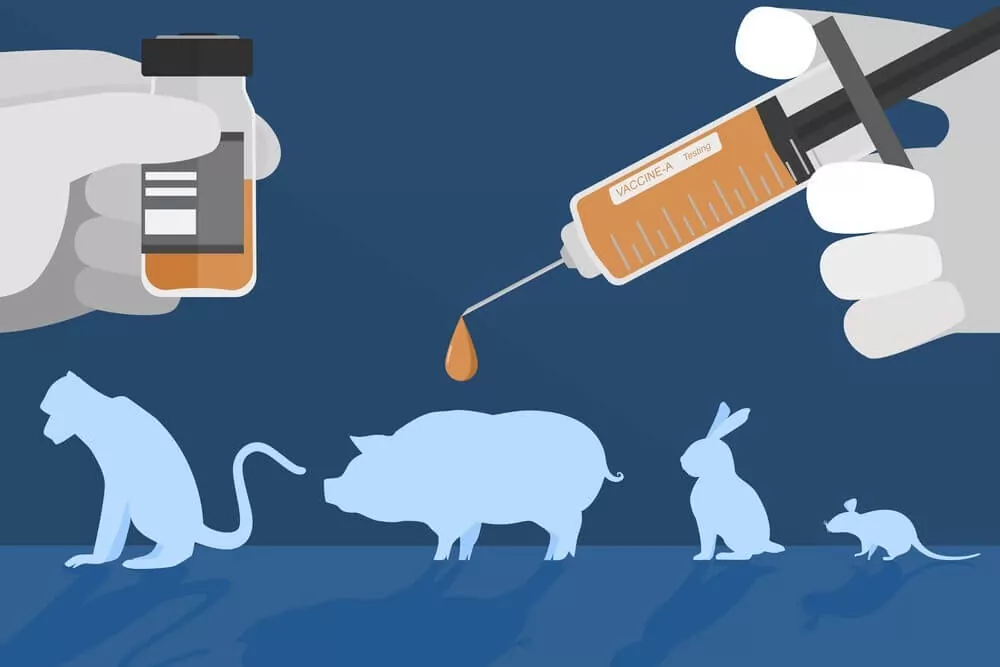
We asked our top writers to suggest some topics they think fit well for an animal testing essay. We got a total of fifty entries that you can select and write something about. If you are stuck and want an essay sample urgently, we can write such an essay for you in a few hours, thanks to our website that helps students write essays ASAP . You can choose from these animal testing essay titles:
- Animal testing should be banned
- Animal testing is not ethical
- Pros and cons of animal testing
- Alternative methods to using animals in drugs development
- Controversy in using animal testing in medical and cosmetic research
- Neglected interests and inhuman practices during animal testing
- The cruelty of animal testing
- Horrors of animal testing
- Accidents during animal testing
- Ethics of transporting caged animals for animal research
- The future of animal testing, given the advancement in biotechnology
- Medical animal testing should be banned
- Should guinea pigs be used for lab work research?
- New, better, and innovative treatments for humanity
- Using animals in medical research is ethical and essential
- Science and the murder of one hundred million animals annually
- Importance of animals in clinical trials
- Importance of animal testing in vaccine development
- Is animal testing necessary for human survival?
- Animal testing as an experimentation industry
- Effectiveness of animal testing
- Exploring the role of Cruelty-Free International Organization
- Role of religious bodies in advocating for animal-testing-free society
- The Americans for the Prevention of Cruelty to Animals (ASPCA) organization
- Ethical issues in animal experimentation
- How animal cruelty affects the ecosystem
- Animal models in vaccine development
- Defining animal cruelty
- Treatment versus rights of animals
- Are animal model results safe for humans?
- Migraine Treatment and Animal testing
- Dinitrophenol drug for overweight and Animal testing
- Anti-arthritis Treatment and Animal Testing
- Animal use in unmanned war drones
- Positive and negative outcomes of animal testing
- Role of media in influencing animal testing
- The politics of deception in animal testing
- Problems associated with animal testing
- Animal testing should be controlled and not stopped
- Licenses that are required for one to conduct animal testing
- Role of Big Pharma in advancing animal testing.
- Can plants be used as an alternative to animal testing?
- Impacts of animal testing on ecology
- How does animal testing affect the economy?
- Can animal testing result in bioweapons?
- Use of technology to predict diseases and outcomes rather than animal testing.
- Are the rights and feelings of animals considered in animal experimentation?
- Are animals used in tests free?
- Reasons rats, rabbits, and pigs are widely used in animal testing
- Can volunteer human beings replace animals in medical research?
- The best approach to take care of animals used in experimentation
- Breakthroughs after animal testing
- Animal testing and the cosmetics industry
- History of animal testing
- Role of CDC in animal testing research
- Role of WHO on animal testing authorization

Where and how to get help with your Animal Testing Essays?
In our article, we have extensively referenced our custom essay writers who can help you ace your animal testing essays. If you feel that the guide cannot help you break down the essay or are short of time, you can pay someone on our website to write one for you. When you buy an argumentative essay from our website, we assign it to a pro writer who will research, draft, and write the paper from scratch.
Our bespoke essay service ensures that every paper is done as though you would have done it. This means that the writer cites every animal testing journal article, credible website, or relevant scholarly resources as you would have done. They do this when they summarize, paraphrase, or quote from the sources.
Therefore, you are guaranteed 100% original and plagiarism-free animal testing essays. Furthermore, whether you are for or against animal testing, we have a writer who can write your argumentative essay outline, annotated bibliography, research paper, and essay.
They can take an ethical stance or argue based on what society or professionals/experts think about the issue.
Trust us with your paper because we have done this time and again : written untraceable papers for students. Our writers are fast, accurate, respectable, and experienced. They know how to score the top grade on the rubric. All the papers we have done have been used as best argumentative essay samples on should animal testing be banned? yours could be the next one.
Are you a student with weak English and need help? Our ESL writers can craft a paper that sounds like someone who does not grasp English. Alternatively, our ENL writers also know how to tone down an English paper. After all, we serve both ESL and ENL clients. Go to our home page, click on order now, place your order and pay for it, and wait as we complete it for you.

Gradecrest is a professional writing service that provides original model papers. We offer personalized services along with research materials for assistance purposes only. All the materials from our website should be used with proper references. See our Terms of Use Page for proper details.

Yes, Animal Testing Should Be Illegal — Here’s Why
PUBLISHED Feb. 1 2023, 10:49 a.m. ET
It’s probably not surprising to find out that a lot of environmentalists think that animal testing should be illegal . And while one of the main reasons is obvious — the practice is cruel — there are some other factors involved too.
When it comes to such a big topic, learning more information is crucial. As a consumer, this allows you to make more informed choices and use your buying power for good .
Animal testing has proven to be ineffective.
Despite what some companies might lead you to believe, animal testing actually isn’t all that effective.
Around 96 percent of drugs that successfully pass preclinical trials — which includes animal testing — then fail to enter the market. “The main causes of failure are lack of effectiveness and safety problems that were not predicted by animal tests,” according to a study from the National Institutes of Health (NIH).
Some might argue that animal testing can still produce useful information, but the study states that the risk isn’t worth it. The results of animal experiments can be misleading, which can cause more harm than good. So while you might get information, it won’t necessarily be useful, and it could even take away resources from experiments with more potential and reliability.
As a result of various factors — bias, poor methodology, etc. — animal testing is considered “highly unlikely to yield useful information about human diseases,” according to the study.
This all might come as a shock, considering the fact that businesses have been engaging in animal testing for years . It’s possible that you were even under the impression that these tests were necessary and the only way to get information.
According to CNN , 10 states have banned the sale of cosmetic products that are tested on animals. New York is the most recent state to take action , citing cruelty, ineffectiveness, and the availability of alternative methods. Hopefully more states will follow suit.
Many companies have banned the practice.
L'Oréal claims that it does not conduct animal testing, but the major beauty brand is not actually cruelty-free, as it does allow its products to be tested on animals.
To further prove that animal testing isn’t necessary, thousands of companies have put a stop to it. Well-known brands such as Dove, Herbal Essences, Dr. Bronner’s, Seventh Generation, and Aveda are all cruelty-free , according to PETA.
In an article from 1989, The New York Times reported on the quiet disentanglement from animal testing . And while we’ve made some progress now — more than 30 years later — not enough has changed.
The issues that were addressed back then are the same as what people bring up in conversations today. Companies were unsure of other methods, still under the strong impression that animal testing was necessary for safety reasons.
The only difference is that today, we know this reason is irrelevant — yet it’s still used as an excuse.
The transition away from animal testing has been a slow one, to say the least. Despite modern alternatives and never-ending protests, only some states have banned the practice and many companies still partake.
Thankfully, even though the progress we’ve made is somewhat minimal, it’s still progress. It seems that if current changes are indicative of the future, then we can look forward to more positive news regarding animal testing .
All of this just goes to show that when consumers demand changes and take action, they can get results, even if those results take a while.
Virginia Passes Act Banning Animal Testing for Cosmetics
The FDA Is No Longer Requiring Animal Testing for New Drugs
These Brutal Cosmetic Testing Methods Are Why We Need Cruelty-Free Makeup
Latest Veganism News and Updates
- ABOUT Green Matters
- Privacy Policy
- Terms of Use
- CONNECT with Green Matters
- Link to Facebook
- Link to Instagram
- Contact us by Email
Opt-out of personalized ads
© Copyright 2024 Green Matters. Green Matters is a registered trademark. All Rights Reserved. People may receive compensation for some links to products and services on this website. Offers may be subject to change without notice.
- Invertebrates
- Best Dog Collar
- Best Smart Dog Collar
- Halo Dog Collar
- Spoton vs Halo Collar
- Wagz Freedom Dog Collar
- SpotOn Dog Collar
- Best Dog Fence
- Best Invisible Dog Fence
- Dog Accessories
- Dog Training
- Dog Harness
- Dog Leashes
- Dog Grooming
- CBD for Dogs
- Dog Age Calculator
- Dog BMI Calculator
- Dog Chocolate Toxicity Calculator
- Dog Food Calculator
- Dog Harness Size Calculator
- Dog Life Expectancy Calculator
- Puppy Weight Calculator
- Dog Water Intake Calculator
- Dog Crate Size Calculator
- Dog Onion Toxicity Calculator
- Dog Raisin Toxicity Calculator
- Pet Sitter Rates Calculator
- Dog Groomer Tip Calculator
- Dog Quality of Life Calculator
- Cost of Owning a Dog Calculator
- Raw Dog Food Calculator
- Dog Dad Shirts
- Dog Mom Shirts
- Automatic Litter Box
- Cat Accessories
- Cat Collars
- Cat Grooming
- Cat Mom Shirts
- Animal Abuse
- Animal Laws
- Animal Rights
- Animal Testing
- How to Help
- Facts & Stats
- Our Campaigns
Animal Testing Should Be Banned Completely – A Heart-Wrecking Situation
Monika Martyn
January 19, 2023.

WorldAnimalFoundation.org is reader-supported. When you buy through links on our site, we may earn an affiliate commission. Learn More
It’s hard to imagine, as an intelligent species, we’re still discussing animal experimentation. There’s no doubt that animal testing is to the apparent benefit of people. However, that doesn’t make it right that over 100 million innocent animals suffer for our well-being.
Animal experimentation needs to end. It’s not a question of right or wrong. Animals have feelings and the right to live without cruelty inflicted on them for the sake of testing chemicals. Period.
So why do we continue to abuse, cage, cripple, infect, and kill dogs, cats, monkeys, mice, and rats in animal experiments? This is not about thanking the cosmetic industry (Europe, India, Israel) for condemning and banning animal tests. It’s about saving the 100 million abused animals in American laboratories.
Here’s what you need to know to stop the abuse and end animal experiments.
Why Is Animal Testing Bad?
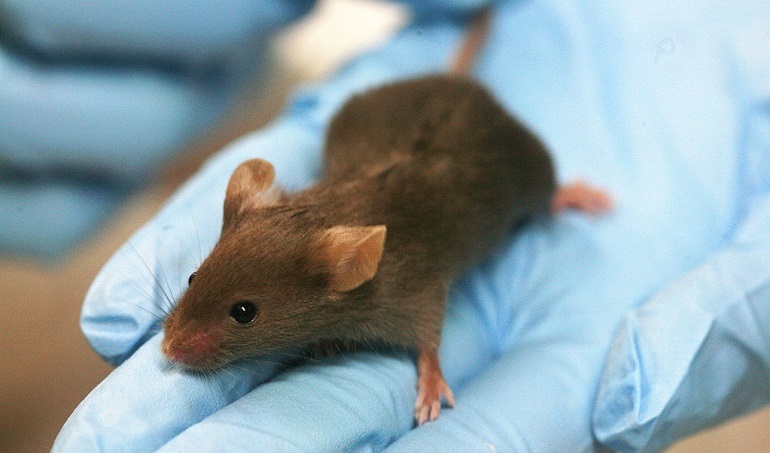
It just is. Animal testing andanimal experiments inflict inhumane suffering on animals. These creatures never consented to have experiments conducted on their bodies, skin, or DNA.
The debate over whether it’s right divides the room. Many people believe animal testing is barbaric and outdated. Others argue that scientific progress has helped save millions of human lives.
It’s Unethical
There are billions of great people in this world. Together, we need to end torturing 100 million animals. Animals experience pain, loneliness, fear, and emotions, just like us. When they have to endure scientific and medical experiments, it’s incomprehensible.
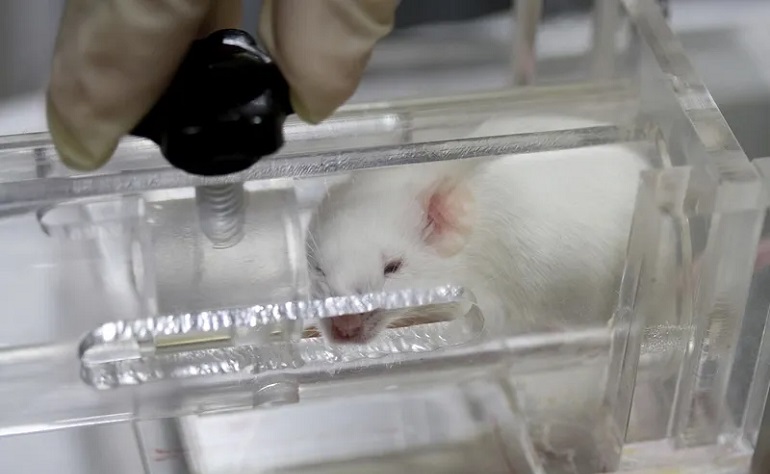
Animal Testing Is Unreliable
Animals and humans share some similarities. It’s one of the main reasons the debate gets so heated: animals have feelings too.
Our differences contribute to the failure of human clinical trials. Many of the pharmaceuticals end up being too dangerous and ineffective for human consumption. That means we subject innocent animals to horrendous suffering for a small return of success.
Up to 95% of experimental drugs that pass animal tests fail in human and clinical trials.
Additionally, some medicines that may work for us are dangerous for animals. For example, aspirin is toxic to animals but is safe for human use. We wouldn’t be able to get it from pharmacies if it had been tested using current animal testing standards.
It’s Bad Science
People believe in science as proof. Therefore, according to the National Institute of Health, 95 out of 100 drugs developed with lab animals fail. In no other facet of life would we accept these results as a ‘good idea.’ It’s proof that animal experiments don’t work.
Animal Testing Is Dangerous for Humans
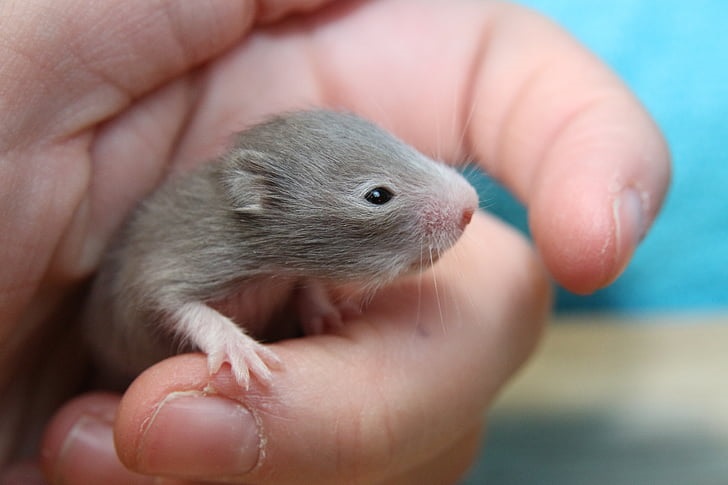
Sometimes math and science don’t work. A few years ago, big pharma pushed a new wonder drug, Vioxx, to treat arthritis patients. It was a welcomed relief. Lab monkeys and five other animal species showed improvements on paper.
Yet, in the aftermath, patients who took the prescribed pills faced a graver issue. Studies showing 320,000 heart attack and stroke victims proved that lab results didn’t help humans. Sadly, 140,000 people died because of Vioxx.
Another clinical trial ended badly for patients who either suffered severe liver damage or death from Hepatitis B due to a drug experiment conducted on animals.
In 2016, another miracle drug that was reportedly going to treat all kinds of conditions killed a volunteer and left four patients with devastating brain damage. This experimental drug passed muster on mice, rats, dogs, and monkeys. Sadly, nobody reported how those animal subjects felt after having the medication forced on them.
In a new monoclonal antibody treatment tested on monkeys at 500 times the recommended human dose, human volunteers suffered near-fatal allergic reactions.
Human beings often volunteer for human trials to help find cures for human diseases. Animal research facilities should promote the health of animals, not human health.
It’s Wasteful
No doubt, we want our loved ones to receive the best care. Unfortunately, animal experiments only make the grade about half the time. The rest end up in the trash as failed and worthless. The sad part is that research using lab animals takes enormous resources and squanders money, time, human intelligence, and creativity.
All that waste causes human suffering on top of animal suffering. According to Dr. Richard Klausner, “We’ve cured mice of cancer for decades. It simply didn’t work on humans.”
Cancer is nasty. But if animals ultimately fail in medical research or other laboratory experiments, why don’t researchers use advanced technology to test harmful substances?
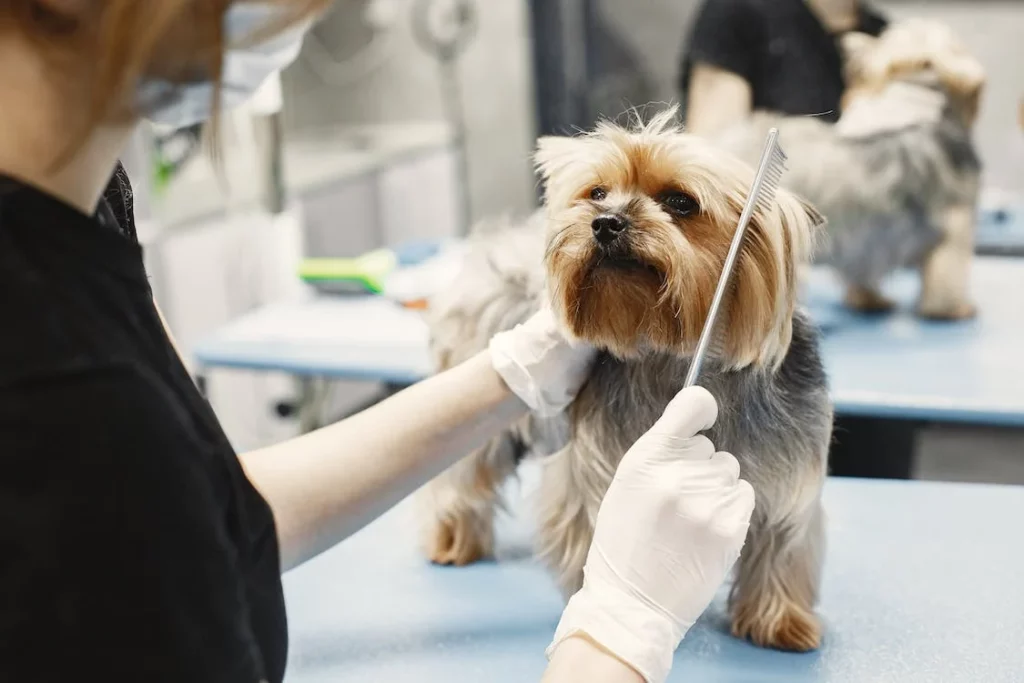
It’s Archaic
Scientists have compassion too. Many have created modern, effective non-animal testing methods that are cost-effective, fast, and deliver more accurate results without animal testing. These non-animal methods include micro-dosing, in vitro testing, organs-on-chips , simulators, and advanced computer modeling technology.
Humans share genetic information and DNA with plants and animals. For example, cows and humans share about 80%, and common fruit flies about 61%. A banana has 60% human DNA.
It’s possible to look at this debate from two sides. One is to explore the common DNA and use it to our benefit. The other is if they share that much genetic material with us, does it make sense to harm them?
Animals Feel Pain
Evolutionary biologist Marc Bekoff and his many colleagues have done all the necessary research to prove animals feel pain. Mammals share strong similarities in the nervous system, chemical transmitters, emotional states, and perceptual tools to prove animals experience pain. That they experience pain differently is irrelevant.
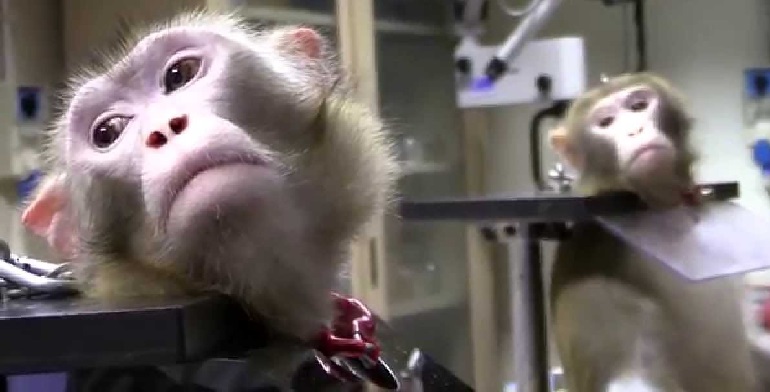
The Animal Welfare Act should protect animals. Yet lab animals like mice, rats, reptiles, amphibians, and birds used in labs don’t fall under their protection. Instead, lab animals endure inhumane procedures and treatments like scorched skin, immobilization, inhaling toxic fumes, and holes drilled in their skull and spinal cords crushed.
Often, lab animals receive no administered pain relief and are left to suffer intense pain. These institutions, by law or regulations, don’t have to provide any.
Yet, in experiments, when many animals like rats, mice, and chickens trapped in barren cages have access to self-administered pain relief, they use it to reduce the pain. Wild animals also nurse their wounds, show distress, and seek shelter.
They learn to avoid situations that relate to bad experiences with pain. This action indicates that animals are aware of the pain and can associate it with experiences from their past.
It’s Unnecessary
It’s challenging to review pictures of animals used without consent and not form an opinion.
The main reason for banning animal testing, aside from sparing animals the pain, is that we don’t need it. Animal testing should not be part of a university lab experiment paid for by the tax-payer who is against animal torture in the first place.
Animal Testing Is Dangerous for Non-Human Animals
That is the point. It’s not only dangerous, cruel, painful, and inhumane; some of the methods harken back to medieval torture chambers.
Imagine mice, rabbits , rats, and guinea pigs with their eyes burned from drip chemicals or toxic potions smeared into their exposed skin tissue without pain medication.
It’s hard to think about a human consenting to the Draize or LD50 Test. This test measuring toxicity often leads to blindness, scarring, death, and insurmountable pain.
Years from now, the LD50 will be on display in museums as one of the wickedest torture animal tests. This substance test is inflicted on animals to be fatal in 50% of the test subjects. Researchers strap animals to tubes and inject the test substance directly into the sequestered animals’ stomachs. Until they die, which can take days or weeks, animals suffer.
The animals die agonizingly, suffering internal bleeding, diarrhea, vomiting, paralysis, convulsions, and horrendous pain. Death becomes their relief.
Facts About Animal Testing
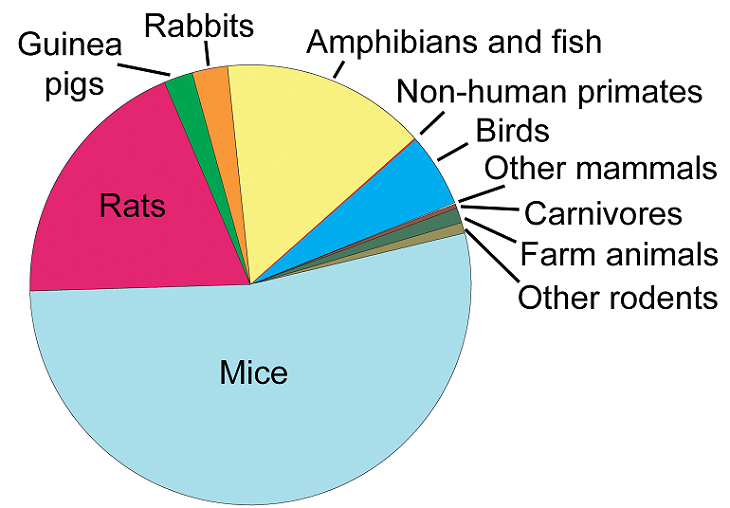
The first fact is that animals suffer. The second is that we must stop animal testing.
The law requires 12,000 animals subjected to over 50 experiments to endure for a company to register a single pesticide. No one argues that pesticides must meet safety standards.
According to the statistics reviewed by the National Institute of Health, only 5% of drugs tested on animals show positive results, while 95% are worthless. That is a bad score. Sixty percent of no-consent animals are exposed to biomedical research and product safety testing.
According to the Humane Society, animals and humans are very different. Animal subjects don’t suffer from the same illnesses as humans. So why are we testing on animals when they don’t contract many human illnesses? HIV, schizophrenia, Parkinson’s disease, heart disease, and certain types of cancer are human diseases.
Substances that cause cancer in people affect animals differently, and only one-third cause cancer in animals. Animal research conducted on over 100 mouse cell types discovered that regulating genes in mice match human DNA. How can you create an exact science and get valid human responses on that foundation?
How to Stop Animal Testing?
Every day, we use products that cost an animal its life or severe pain. Awareness campaigns are only a starting point. Choosing animal cruelty-free products is another. The science supporting animal testing stands on faulty ground. Instead, all industries should concentrate on using new methods and technologies to conduct research that works.
Some industries, like cosmetic companies, are making strides and not testing on animals. However, there’s much room for improvement in the household cleaner, deodorant, fem hygiene, and thousands of pharmaceutical products.
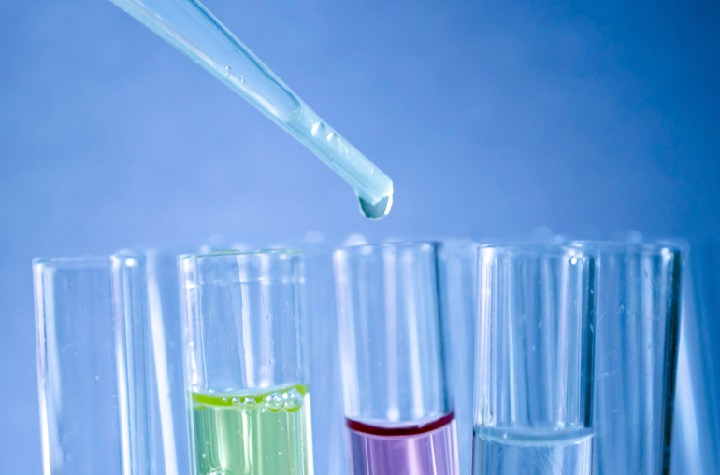
Animal rights activists paved the way to end suffering for endangered species , lab animals, and domesticated animals.
Alternative Ways of Experimenting

People are smart. Technology has exploded in the last few decades. We can use human cells and tissue, 3D printing, robots, and computer modeling to get more accurate results faster. They’re also cost-effective and don’t subject animals to cruel and unnecessary animal tests.
If this was painful to read, the article has done its job.
In conclusion, animal testing and research must be banned worldwide, as it is against animals’ rights and causes unwanted suffering to lab animals. Also, now there are other available methods to test product toxicity. Cruelty against animals should not be taken lightly just because they are not “humans.”
We’re on the precipice of human evolution and developing a united mindset to stop animal testing once and for all.
Every individual has the power to influence change. Choose cruelty-free products, become involved, champion the cause, and help millions of animals. The USA Government has finally passed a law banning animal testing on cosmetics.
Join the conversation and become an animal advocate. You are the difference!
Leave a comment Cancel reply
Your email address will not be published. Required fields are marked *
Save my name, email, and website in this browser for the next time I comment.
Latest Posts

10 Dog Breeds that Can Get Along with Rabbits

10 Best Dog Breeds for Truffle Hunting

7 Best Dog Breeds for Dock Diving Competitions

10 Best Dog Breeds for Runners & Active Owners

10 Best Pastoral Dog Breeds for Your Farming Needs

7 Dog Breeds to Protect Against Loiterers & Discourage Trespassers

9 Gun Dog Breeds To Join You in the Field

7 Best Dog Breeds to Protect against Jogging Threats

7 Best Large Livestock Guardian Dog Breeds

The 7 Best Guard Dog Breeds for Sailors and Boaters
Get updates on the latest posts and more from World Animal Foundation straight to your inbox.
Why Animal Testing Should Be Banned: 7 Reasons It Has To Stop
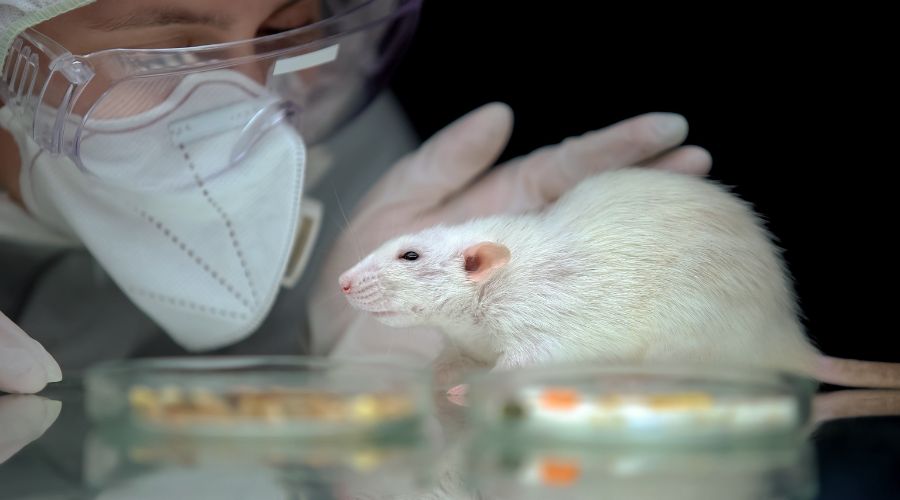
If you’ve landed on this page, chances are you have a pet you love so much or simply adore animals and care about their welfare. For pet lovers, imagine if someone was to subject your furry best friend to months of painful injections. Imagine if your cat was to spend months locked up in a cage just to observe how they react to chemicals. You shudder at that thought, right?
That’s precisely the kind of torture that animals go through during animal experiments. If the disgust you feel right now is not enough to convince you why animal testing should be banned, then keep reading. We explain a few more reasons why we should stop animal testing ASAP.
Learn more: What Is Animal Testing? The Truth Behind Experimenting on Animals
Why Animal Testing Should Be Banned
Despite the continued use of animals in experiments, there are many strong reasons why animal testing should be stopped. Here are some of them:
1. There’s no consent offered
Like you and me, animals can feel, think, and, most importantly, experience pain. But, unlike us, they can’t talk, so they can’t consent to be part of the experiments.
Before a human being can participate in research, they need to sign a consent form that shows they’re aware of what will happen. Can you imagine trying to get an animal to sign a consent form? It’s too silly to even consider. This is why animal research remains popular. There are fewer hurdles to jump through to gain test subjects.
Supporters of animal research say that animals’ lack of knowledge is why they’re perfect for experimentation. But for those of us who believe animal testing should be banned, we think that just because animals aren’t as intelligent as humans doesn’t mean they should be exploited and mistreated. Animals have just as much right to autonomy as we humans do.
2. It produces inaccurate results
92% of drugs that pass animal testing fail human testing. 90% of products that pass animal tests fail to make it to the market. This makes a lot of sense when you think about it. Animals and humans have different physiologies.
We would never test drugs meant for animals on humans. Then why is it a thing to test on animals drugs intended for humans? It definitely shouldn’t be!
3. It’s an old-fashioned and obsolete method
Once upon a time, scientists relied on animals for their research. In the past, the research capabilities of laboratories were not as advanced as they are today. One can argue that the lack of alternatives made animal testing seem necessary. It might have even led to some amazing breakthroughs.
However, in the decades since, scientific innovation has grown. We can grow cells in the labs. In fact, we now have lab-grown body organs. Isn’t that amazing?
This innovation is why we should stop animal testing and move on to the many currently available alternatives.
4. It’s expensive and wasteful
Animal testing isn’t cheap. It can take 10 years of animal tests and $3 million for a single pesticide to get registered. According to the Humane Society International , testing on animals is much more expensive and time-consuming than in-vitro methods. Should animal testing be stopped, we’d have more resources to advance research through alternative methods that don’t require animals or even humans to be tested on.
Think about this for a second: Over 100 million animals are used in experiments yearly, but only 59 new drugs were approved for the market in 2018. Despite the drug industry investing $50 billion annually, we have the same drug approval rate as we did in the 1970s. Is this kind of waste really necessary? I don’t think so.
The cosmetics industry uses animal testing the most . Still, most of the thousands of ingredients found in cosmetics have already been found to be safe. There’s no need to put animals through so much pain and trauma when these ingredients have already been certified safe.
5. There are better alternatives
If there’s one good reason why we should stop animal testing, it’s the fact that alternatives that don’t require animals exist. Thanks to technological advances, many decent alternatives to animal testing exist. In-vitro testing methods work very well and are cheaper. 3-D printing, computer models, and robots can be used instead of animals. Synthetic cellular tissues and eyes can be used to test the irritability of cosmetics.
Should testing on animals be banned, the impact on science and research would be minimal.
6. It’s cruel and painful
Besides being expensive, wasteful, and unnecessary, animal testing is inhumane. According to animal welfare activists, this simple fact is why animal testing should be banned. The animals suffer physically and psychologically even in tests that are described as mild. The different experiments often leave the animal injured or disabled. Some experiments don’t bother with anesthesia or painkillers.
It’s devastating to imagine what those poor creatures are forced to endure. Should animal testing be illegal, we can prevent countless animals from suffering the same fate.
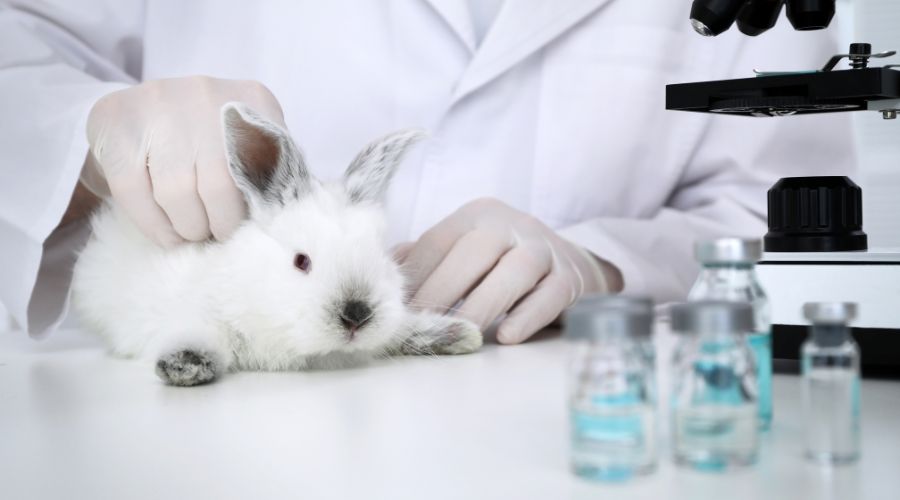
7. It’s simply unethical
It’s unethical to sentence almost 200 million animals to life in a cage and intentionally cause pain, loneliness, and fear just to please human beings.
More Reasons Why Animal Testing Should Be Stopped
Still not convinced? Here are more reasons why animal testing should be banned.
Too many animals are being used in experiments
Globally, over 192 million animals are used in scientific research every year . Over 100 million animals are used in experiments in the United States alone. Truth be told, we don’t know the total number of animals used in animal testing thanks to loopholes in the Animal Welfare Act (AWA).
Animals must be harmed to get proper results
Three types of tests are done: skin and eye irritation, chemical exposure, and lethal dose. In each trial, the animal is harmed to see how it reacts to certain chemicals.
Animal testing is not a legal requirement
The Federal Food, Drug, and Cosmetic Act doesn’t legally require cosmetic animal testing . This means that cosmetics companies don’t need to use animals at all. What’s worse is that most products don’t even need additional testing as they’ve been proven safe. Unbelievable!
Regulated testing is still harmful
Even though The Animal Welfare Act (AWA) allows regulated testing on the animals it protects, 800,000 animals are subjected to regulated tests every year.
While these tests are regulated, and the animals may be subjected to more humane practices, corporations and laboratories are left with injured and traumatized animals once the tests are done. These animals are not given up for adoption due to their disabilities. As such, they’re euthanized.
Banning animal testing worldwide will enhance already existing bans
21% of countries have partial or total bans on animal cosmetic tests. As more people understand the harm caused by these experiments, more and more countries are starting to consider regulating the practice. If the world unanimously agreed to ban animal testing, existing regulations and bans would be taken seriously.
How Can We Stop Animal Testing?
Now that we’ve gone over a good number of reasons why animal testing should be banned let’s delve into how this can be achieved.
To begin with, it’s essential to raise awareness of what a cruel and unnecessary practice of animal testing is. Many people don’t know the true extent of animal testing. By informing them, you can convince them to join the fight against animal testing.
Secondly, it’s vital to use cruelty-free products. These are products that have not been tested on animals. You’re telling corporations that cruelty-free products are the way to go by only buying cruelty-free products. Look for cruelty-free certifications from Cruelty-Free International , Leaping Bunnies , and Beauty Without Bunnies .
Thirdly, we need to push for other alternatives to animal testing . Innovations in science and technology can allow us to develop more humane testing methods that exclude the use of animals as subjects.
Finally, put pressure on your representatives to support legislation that bans animal testing.
The reasons why animal testing should be banned are so many. But the one that should tag your heart the most is just how much pain and torture these beautiful creatures that bring us so much joy go through. Further, the tests cost millions of dollars and can take years to complete. After all of that, there’s a slight chance that the end result is beneficial to humans. Meanwhile, the animals are suffering greatly for something so unnecessary. It is a tragedy, and we should all work together to stop it.
You Might Also Like:
- Pros and Cons of Animal Testing

Stella is a writer and mother from Thika, Kenya.
Her love for nature and the beautiful Kenyan outdoors has inspired Stella to consciously make an effort to lead a more sustainable, eco-friendly lifestyle.

Popular Posts
How To Save Water in the Home
Green Cleaning: The Ultimate Guide
Zero Waste Living Guide
Ethical & Sustainable Clothing Guide
105 Ways To Be More Eco Friendly

IMAGES
VIDEO
COMMENTS
Animal Testing: Conclusion. Animal testing is a helpful phenomenon in biological, medical, and other scientific investigations demanding its incorporation. The phenomenon is helpful, viable, and should be embraced despite the opposing opinions. Animal testing helps in developing effective, safe, viable, qualitative, and less toxic drugs.
The use of nonpredictive animal experiments can cause human suffering in at least two ways: (1) by producing misleading safety and efficacy data and (2) by causing potential abandonment of useful medical treatments and misdirecting resources away from more effective testing methods. Humans are harmed because of misleading animal testing results.
History of Animal Testing. Animals are used to develop medical treatments, determine the toxicity of medications, check the safety of products destined for human use, and other biomedical, commercial, and health care uses. Research on living animals has been practiced since at least 500 BC. Descriptions of the dissection of live animals have ...
The E.P.A. Administrator Andrew Wheeler said the agency plans to reduce the amount of studies that involve mammal testing by 30 percent by 2025, and to eliminate the studies entirely by 2035 ...
1. The use of animal subjects for practical uses for new drugs and other products is called animal testing. 2. Animal testing helps to gauge a drug's or product's potency and side effects. 3. Drugs are used on animals before deeming fit to be used by humans. 4. People hurt animals in research labs on a daily basis. 5.
Plagiarism checker. Writing help, paraphrasing tool, animal testing should be banned. Animal Testing , Cruelty To Animals , Experiment; How it works. Many organizations are debati
The issue of whether animal testing should be banned has sparked intense debate among scientists, ethicists, policymakers, and animal rights advocates. This essay aims to analyze the arguments both for and against banning animal testing, shedding light on the complex ethical and practical considerations involved.
This page titled 8.10: Animal Testing Should Be Banned is shared under a CC BY-SA 4.0 license and was authored, remixed, and/or curated by Nathan Nobis (Open Philosophy Press) via source content that was edited to the style and standards of the LibreTexts platform; a detailed edit history is available upon request.
Nowadays animal experiments are widely used to develop new medicines and to test the safety of other products. Some people argue that these experiments should be banned because it is morally wrong to cause animals to suffer, while others are in favour of them because of their benefits to humanity. Discuss both views and give your own opinion.
Introduction. Animal model-based research has been performed for a very long time. Ever since the 5 th century B.C., reports of experiments involving animals have been documented, but an increase in the frequency of their utilization has been observed since the 19 th century [].Most institutions for medical research around the world use non-human animals as experimental subjects [].
Arguments against animal testing. Animal experiments are cruel, unreliable, and even dangerous. The harmful use of animals in experiments is not only cruel but also often ineffective. Animals do not naturally get many of the diseases that humans do, such as major types of heart disease, many types of cancer, HIV, Parkinson's disease or ...
One of the most debated topics in modern animal right discourses is whether animals should be used for scientific test or not. There is always a group of scholars and common people who are dead against the animal test. On the other hand, considerate people opine that animals can be used in scientific experiments, if ...
Students are often asked to write an essay on Why Animal Testing Should Be Banned in their schools and colleges. And if you're also looking for the same, we have created 100-word, 250-word, and 500-word essays on the topic. Let's take a look… 100 Words Essay on Why Animal Testing Should Be Banned Animal Testing Is Unkind
One of the main advantages for animal testing is advancements in medical research. 2. Animals have physiological and biological similarities to human. Some animals share a surprisingly high amount of DNA with human beings. For instance, chimpanzees share 99% of DNA with humans, while mice share 98%.
A well-structured animal testing essay will automatically earn you marks. In most cases, it follows the conventional five-paragraph essay format divided into the introduction, main body, and conclusion. The introduction and conclusion are each 10% of the word count, while the main body is 80%. You have to format your paper in APA, MLA, or ...
Yes, Animal Testing Should Be Illegal — Here's Why. By Rayna Skiver. PUBLISHED Feb. 1 2023, 10:49 a.m. ET. Source: Getty Images. It's probably not surprising to find out that a lot of environmentalists think that animal testing should be illegal. And while one of the main reasons is obvious — the practice is cruel — there are some ...
Animal Testing Should Be Banned Completely - A Heart-Wrecking Situation. Monika Martyn. January 19, 2023. It's hard to imagine, as an intelligent species, we're still discussing animal experimentation. There's no doubt that animal testing is to the apparent benefit of people. However, that doesn't make it right that over 100 million ...
It also contains many other alternatives such as cell culture, tissue culture, computer models which can easily replace testing on animals. There is a several reasons which shows that animal testing should be banned. First and the foremost reason is that animal suffers a lot from these experimentation as scientist give them injuries without ...
📝 Essay description: This paper explains the reasons why animal testing should be banned. The reasons are stated per their advantages and disadvantages.🔗 E...
I strongly believe that animal testing should be banned due how extremely cruel and unethical it is. These experiments cause not only physical harm to the animals, but also psychological harm and long-term damage to them. Research shows these animals may experience physical harm such as getting burned, starved, drowned, electrocuted and poisoned.
One of the first reasons why we shouldn't have animal testing is because animals are getting hurt or abused. Another reason why we shouldn't have animal testing is drugs that pass animal tests are not necessarily safe on humans. The main idea of the essay is animal testing should be banned.…. 487 Words.
Despite the continued use of animals in experiments, there are many strong reasons why animal testing should be stopped. Here are some of them: 1. There's no consent offered. Like you and me, animals can feel, think, and, most importantly, experience pain. But, unlike us, they can't talk, so they can't consent to be part of the experiments.